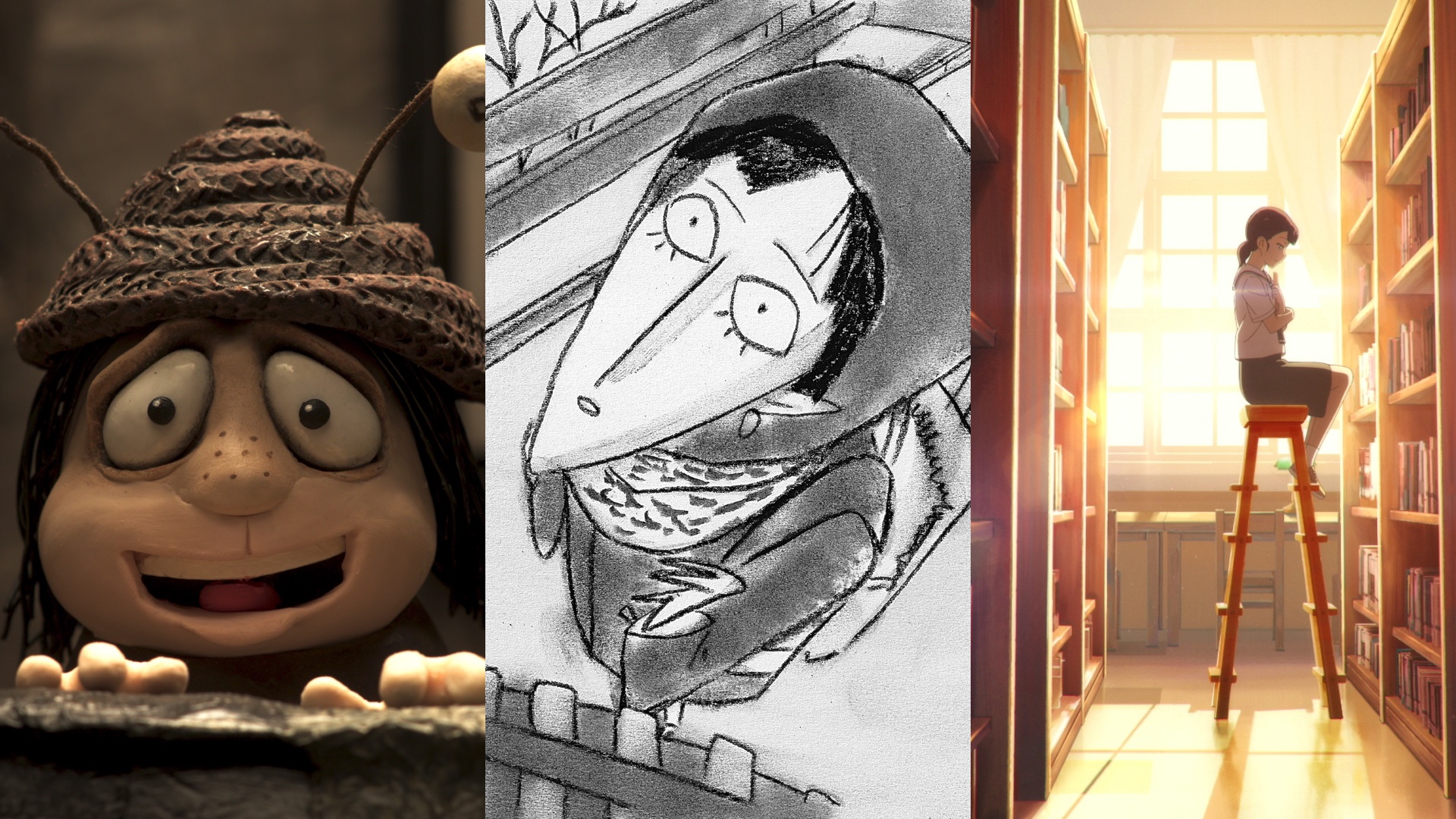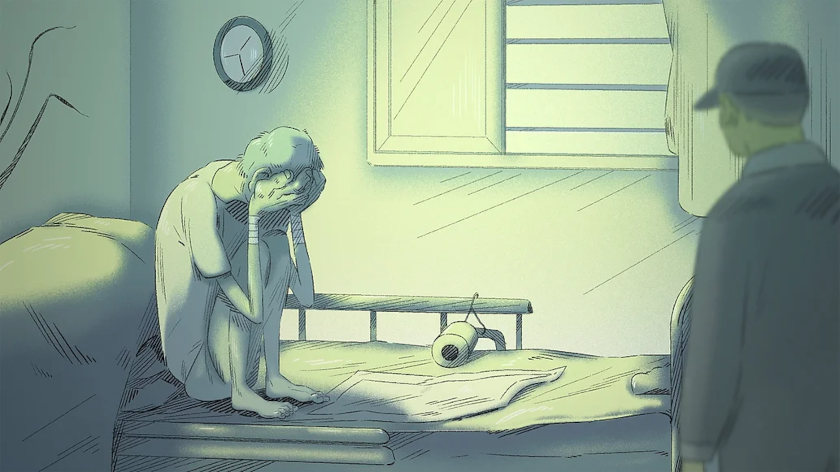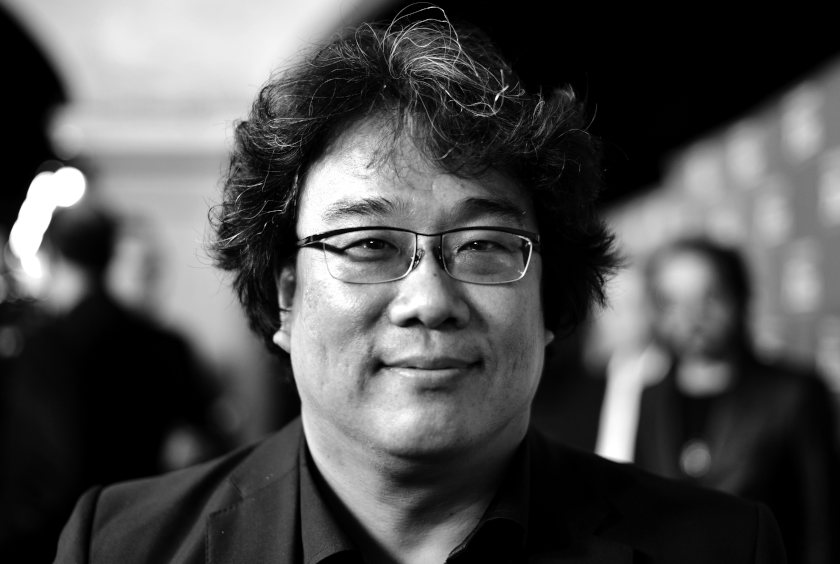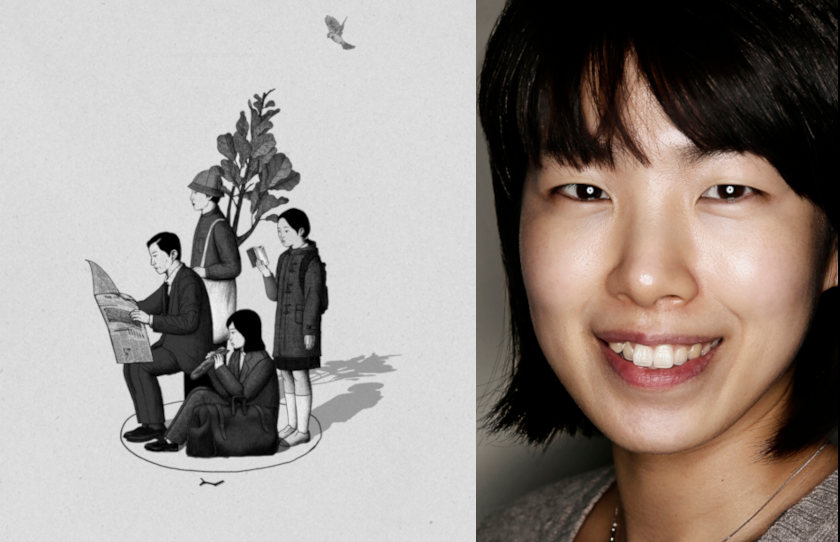The King of Pigs review: It hurts to be a human
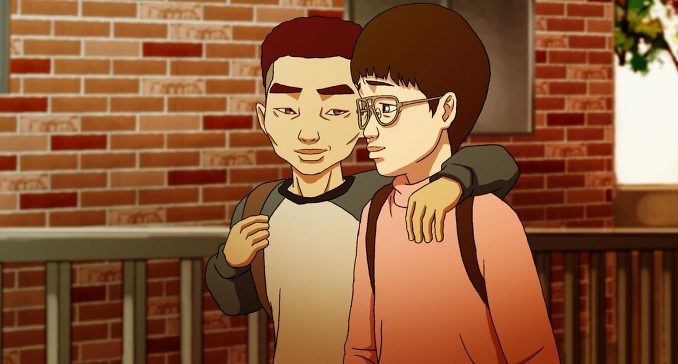
What more can be said of a film which signifies itself with the motto: "A knife is what distinguishes humans from animals"?
Its style has been addressed as 'stylized violence', but The King of Pigs by the South Korean director Yeon Sang-ho is nothing of the almost ritualistic fights an anime may have. Instead, it uses its impressive and radiantly violent world to unfold a majestic drama of friendship and human unforgiveness.
Like Waltz with Bashir, The King of Pigs starts with a blast. A shot of a woman dead in her home, deeply dived in blue hues, gives its place to a shower scene. A naked Kyung-min (Oh Jung-se) has killed his wife, after his business goes bankrupt. He now wants to meet his former classmate Jong-suk (Yang Ik-june).
Cut to Jong-suk, whose boss angrily suggests he is a failure as a ghostwriter. Jong-suk will externalise his anger to his highly submissive girlfriend (a postgraduate university student, nevertheless), and answers the call from Kyung-min.
These friends couldn't be more different. The angular-faced, Jong-suk with his thick eyebrows and a face ready to turn into a fierce animal at every instant seems too distanced from the easy-going, bespectacled and whining school kid Kyung-min once was.
Both share a past history of being bullied and terrorized, though. In a series of flashbacks, we learn that both Kyung-min and Jong-suk were classified by pigs (possibly due to their low grades, but nothing of this matters eventually), and they were constantly terrorized by a class of students called "dogs". A strict hierarchy of ruling class (the internal class system itself is responsible to students of higher grades) in unadorned classrooms ensure that violence and sexual abuse will continue unabated. Teacher presence is reduced to a minimum, when it does not itself result to physical abuse.
Yet, The King of Pigs is not an exponential series of violent incidents, but a clever, suspenseful and viral ping-pong exchange of violence for survival. Separating each set of episodes with outdoor shots of semi-indiscernible surroundings of narrow streets, The King of Pigs gets its name from the presence of an outcast which will act as the catalyst to the relationship between the two boys.
The Bruce Lee stereotype of Chul-yi appears, who will challenge dogs, and become the absent father for both Jong-suk and Kyung Min. (Their own families are troubled souls, unable to help and mostly depicted as the quintessential losers).
Chul-yi teaches them the way to go with animals and foretells them of his own future in a rooftop scene fight, full of red and purple sky hues.
From rooftops to class level and back to the street, The King of Pigs structures its social hierarchy in a way that one is lonely at the top, and safer in the middle. Just like the bright student Chan-young Park, who learns that good grades will never get him to the top, and he can only learn to open his eyes and obey.
The King of Pigs talks about kids, but is not addressed to them. Even adults may find that the level of violence (or better, the sound of violence) is too high-pitched to watch (but no bodies are mutilated here).
Yet, the film does not celebrate violence, and its surreal dream images only point out to the worst nightmares who have invaded a reality none of the characters ever wished to materialize.
The twist in the ending only confirms the skillful narrative strategy Yeon Sang-ho achieves, and ties together issues of losing of one's human ties in order to get a place in the hierarchy of pigs. Not even a king is safe there.
Vassilis Kroustallis


